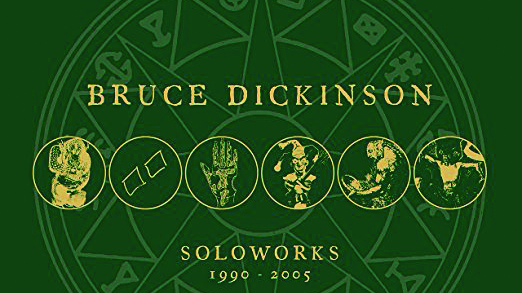It’s a busy time for Bruce Dickinson. Not only is his autobiography, What Does This Button Do?, being published, but all of his solo studio albums have been collated together in this vinyl-edition box set. And it’s informative to look back at how these represent his changing approach to his music away from Maiden.
Tattooed Millionaire, from 1990, was his debut solo release, and it’s cut from a similar style to that of Maiden – maybe a little sharper and snappier, but you can still tell where he belongs. Four years later, having now left the mothership, he issued Balls To Picasso. Working with guitarist Roy Z and his band Tribe Of Gypsies, the vocalist came up with a much tougher and more stripped-down approach, in keeping with the dominant grunge trailblazers of the era.
Now, 1996’s Skunkworks is not only the best Dickinson solo effort, but it’s the one that saw a radical shift in direction. Almost entirely eschewing connections to Maiden and that more traditional approach to rock, this was very much in the alternative vein, having much in common with Soundgarden and Alice In Chains. Songs such as Space Race and Back From The Edge were convincing examples of the man’s fresh musical aspirations.
It was such a pity, though, that Dickinson pulled back from this bold new environment for Accident Of Birth a year later. This was a return to familiar ground on an album that had the involvement of guitarist Adrian Smith, another former Maiden alumnus, and it was rightly viewed as being a little staid and obvious.
The Chemical Wedding in 1998 was inspired by the writings of William Blake, and at least moved Dickinson slightly further from the metal mainstream, even if it lacked the boldness of Balls To Picasso and Skunkworks. And in 2005, now back in the Maiden ranks, Dickinson felt able to take a few more musical risks on the erudite and challenging Tyranny Of Souls. Roy Z was heavily involved again, as he was for all these albums, apart from the first one and Skunkworks.
Overall then? Soloworks contains an impressive catalogue of work that proves Dickinson’s undeniable worth as a genuinely individual artist, one of most crucial the UK has ever produced, even if some of these albums are a little uneven.

